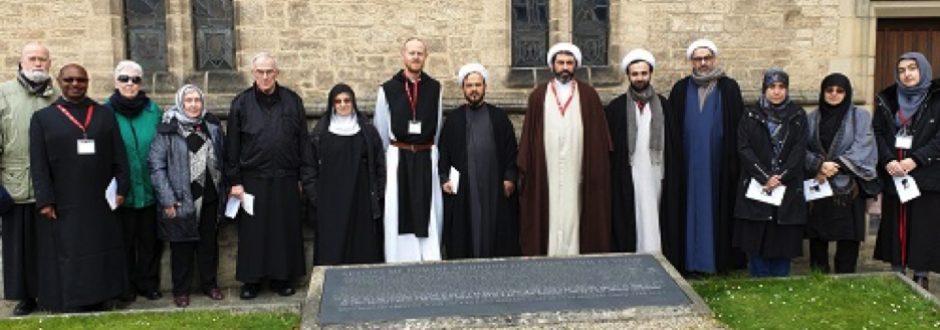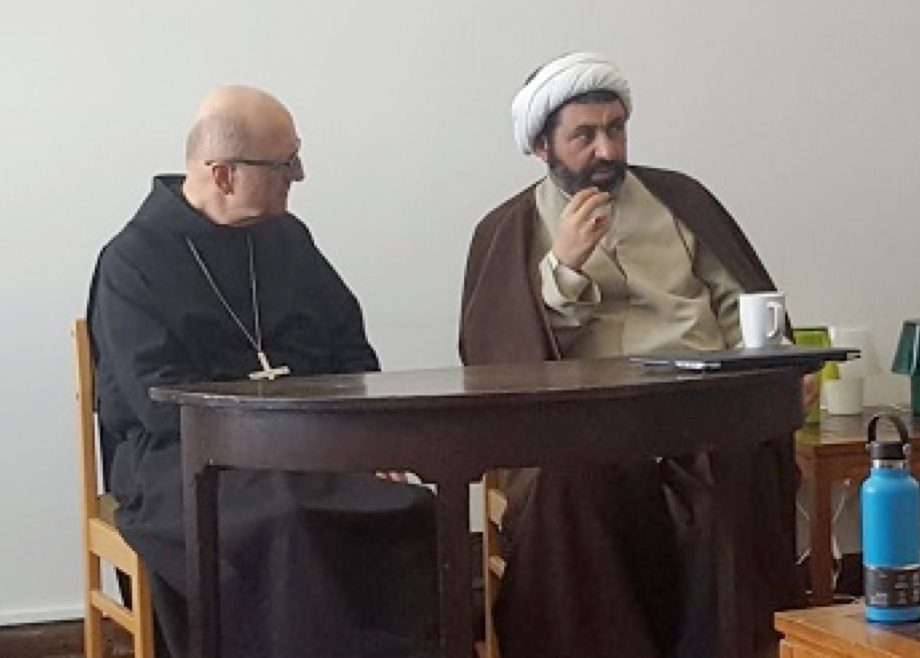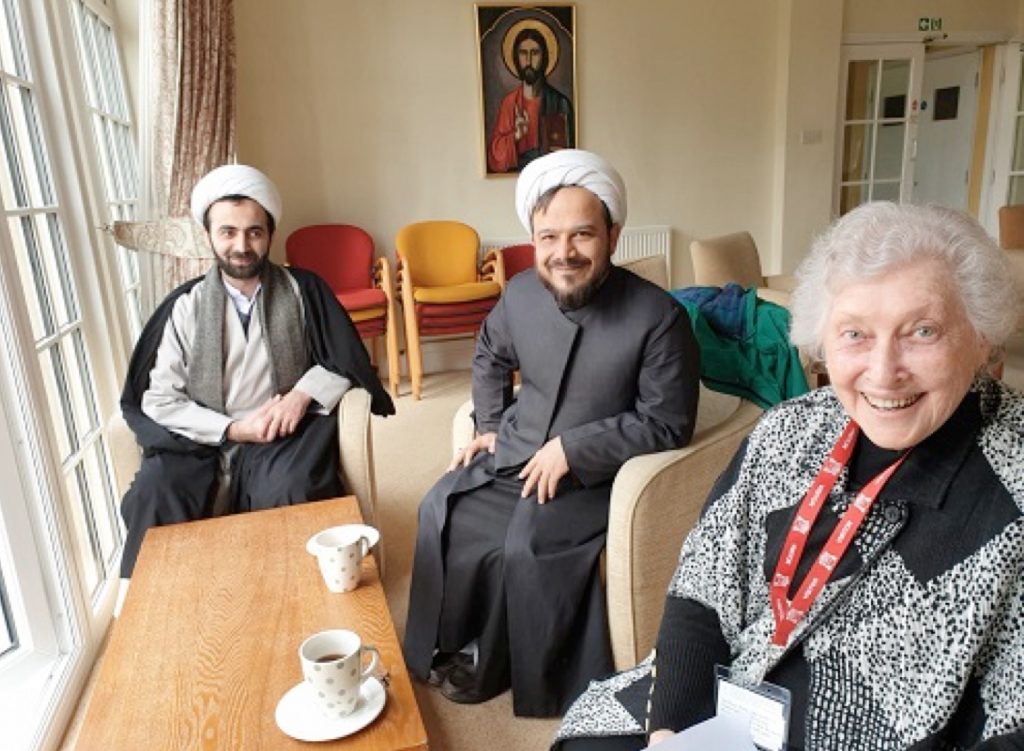Following the recent Monastic-Muslim Dialogue Conference, Sister Lorraine Victorsen SGS reflects on the importance of interreligious dialogue and engagement.
BY Lorraine Victorsen SGS
In her 2008 book, The Im-Possibility of Interreligious Dialogue, Catherine Cornille outlines her preconditions for “constructive and enriching dialogue between religions”. The major themes she identifies include humility, conviction, interconnection, empathy and generosity.
However, by indicating the significant obstacles for dialogue within Christianity, Cornille also proposes ways in which these obstacles may be overcome from within. She maintains that breaking down the walls that divide faiths, while respecting the uniqueness of each tradition, requires the courageous embrace of all those preconditions.[1]
You may well ask, “Why is interreligious dialogue so important?”. While it is not a new concept, it is at this time in Australia’s multi-cultural history, a concept not only worthy of consideration, but one that is vital for a cohesive Australian society. As Australia becomes a more secularised society, it is important that people of faith come together to promote the values they hold in common – the values of community, justice and peace.
Nearly 54 years ago, on October 28 1965, the Second Vatican Council presented a major document, the Declaration on the Relationship of the Church to Non-Christian Religions (Nostra Aetate), calling all members of the Catholic Church to build relations with believers of other faith traditions. This invited a new attitude among Catholics. Far from “tolerating” members of other religious traditions, we were being called to engage in dialogue with them.
Today, as in 1965, while witnessing faithfully to our own religious tradition, we are still being called, through dialogue and collaboration, to actively “recognise, preserve and promote the spiritual and moral goods” found among people of other faith traditions, “as well as the values in their society and culture”. (Nostra Aetate, 2). Subsequent Church documents have provided guidelines that have helped to make this form of dialogue available to all of us – e.g. dialogue of life, dialogue of action, dialogue of religious experience, and dialogue of theological exchange.[2] The opportunities created in these forms of dialogue enable people from a variety of faith traditions to be better informed regarding the beliefs and practices of others, to clarify doubts, misconceptions and misunderstandings and to come to a better appreciation of their own, and the other’s, faith tradition.
As members of the Benedictine family, we are blessed to be part of an interreligious initiative – Monastic-Muslim Dialogue – that began nearly 20 years ago under the leadership of the then Abbot Primate Notker Wolf OSB and which today, is supported by the current Abbot Primate Gregory Polan OSB. Both Abbots not only support and encourage this form of dialogue, but are actively engaged in the dialogue.
For nearly 20 years Benedictines, with their Muslim brothers and sisters, have been examining the relationship between the followers of the Rule of Benedict and the followers of Islam. The late Abbot Timothy Wright OSB maintained: “Muslim spirituality is more closely related to monastic spirituality than to any other Catholic spiritual tradition. Both confess One God, Revealed in Word, whose Creating and Merciful gifts we recognise in prayer regularly throughout the day, as individuals and as a community. In addition, we read, ponder, munch and pray the Revealed Word, available to us as Inspired Scripture.” [3]
Pope Francis underscored the important contribution of Benedictines in this area when, during an address to Benedictines gathered at the Primatial Abbey of Saint Anselm in Rome in 2018, he said: “… Benedictines have always been recognised for their commitment to ecumenism and interreligious dialogue. I encourage you to continue in this important work for the Church and for the world, placing your traditional hospitality at its service.” [4]
Of course, as with all forms of dialogue, there are many challenges in Monastic-Muslim dialogue. There are, however, also numerous benefits, including valued friendships, mutual support, encouragement, inspiration and co-operative partnerships.
In March this year, I had the privilege of taking part in the 9th Monastic-Muslim Dialogue Conference held in Ealing Abbey, London and Ampleforth Abbey in Yorkshire. There were 18 participants – eight Benedictines – (five monks, one nun from Stanbrook Abbey and two Sisters – one from US, the other from Australia), and 10 Muslims – (four men – all clerics, and six women). Ten countries were represented – Italy, USA, UK, Canada, Iran, Argentina, Belgium, France, Tanzania and Australia.
The theme of this year’s conference was the meaning of “conversion” in the Bible and in the Qur’an. In his paper, Abbot Primate Gregory Polan OSB emphasised that the fundamental meaning of “conversion” in the Hebrew Scriptures is turning away from sin and returning to God. He explained that it is also the meaning at the heart of Jesus’ call to mentanoia, a word that is often translated as “repentance” but literally means a change of mind and heart.
Dr Mohammad Shomali’s approach pointed out that the Qur’an’s emphasis on “reviving” indicates that conversion brings one to another level of life. The commentary on the Qur’an verse “Whoever does righteous deeds, while having faith, we will certainly revive them” interprets this to mean that conversion brings about a new birth, a new life, and not simply a change in one’s existence. While there was a difference in approach and understanding, both groups benefited from the discussions that followed and participants were able to understand the concept of “conversion” in new, and less-threatening, ways than they had previously.
There are so many ways we can learn from one another. For example, the month of Ramadan which has just ended, requires Muslim worshippers through strict fasting, to concentrate their minds on devotion to their faith through extensive additional times for prayer, through opportunities for expressing gratitude, through actively seeking forgiveness and through helping those in need.
When I observe such fidelity, dedication and commitment, I am personally challenged, humbled and encouraged and I resolve to put greater effort into my own Lenten observances in the future.
In 2015, on the occasion of the 50th Anniversary of Nostra Aetate, the Australian Catholic Bishops Conference acknowledged that while much had been achieved in the last fifty years there was still much to be done and they urged all Catholics to build on the foundations that had been laid. “Interreligious dialogue” they agreed “is an integral part of the mission of the Church” 5 not just for the leaders or a select few, but for all of us. That said, engaging in interreligious dialogue is not just a responsibility – it is also an enriching experience and a great privilege.
Footnotes:
[1] Catherine Cornille, The Im-Possibility of Interreligious Dialogue (Crossroad Publishing Company, 2008).
[2] See Pontifical Council for Interreligious Dialogue: (1) Dialogue and Mission. The Attitude of the Church Towards the Followers of other Religions: Reflection and Orientations on Dialogue and Mission, 1984; (2) Dialogue and Proclamation. Reflection and Orientations on Interreligious Dialogue and the Proclamation of the Gospel of Jesus Christ, 1991.
[5] Australian Catholic Bishops Conference, Nostra Aetate: Celebrating Fifty Years of the Catholic Church’s Dialogue with Jews and Muslims, 2015.



